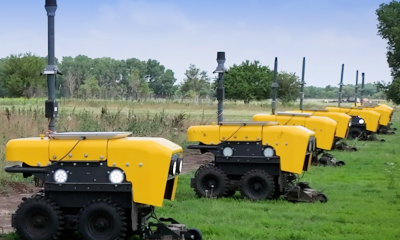Investing
China’s auto workers bear the brunt of price war as fallout widens

© Reuters. FILE PHOTO: Employees work on assembly line during a construction completion event of SAIC Volkswagen MEB electric vehicle plant in Shanghai, China November 8, 2019. REUTERS/Aly Song/File Photo
2/2
SHANGHAI (Reuters) – As Shanghai sweltered in a heatwave in June, the car factory where Mike Chen works switched production to night shifts and dialled down the air-conditioning.
For Chen, toiling through the early hours in his sweat-soaked uniform, it was the latest slap in the face after cuts in bonuses and overtime slashed his monthly pay this year to little more than a third of what he earned when he was hired in 2016.
Chen, 32, who works for a joint venture between China’s state-owned car giant SAIC and Germany’s Volkswagen (ETR:), is far from alone. Millions of auto workers and suppliers in China are feeling the heat as an electric vehicle price war forces carmakers to shave costs anywhere they can.
“SAIC-VW used to be the best employer and I felt honoured to work here,” said Chen. “Now I just feel angry and sad.”
The price war triggered by Tesla (NASDAQ:) has sucked in more than 40 brands, shifted demand away from older models and forced some automakers to curb production of both EVs and combustion-engine cars, or shut factories altogether.
Reuters interviews with 10 executives of carmakers and auto parts suppliers, as well as seven factory workers, point to a broader industry in distress, with penny-pinching on everything from components to electricity bills to wages – which is in turn hitting spending elsewhere in the economy.
Asked about the SAIC-VW plant where Chen works, which makes combustion-engine cars, VW said pay at joint ventures varied based on working hours and bonuses. It said making cars at night eased the burden on power grids and that healthy, good working conditions were a high priority. SAIC did not respond.
Economists warn that China’s auto sector could even become a drag on economic growth because of the fallout from the price war, which would be a stark turnaround for a car industry that is by far the world’s biggest.
The problem is that while there has been huge investment in production capacity, helped by large state subsidies, domestic demand for cars has stagnated and household incomes remain under pressure, economists say.
In the first seven months of 2023, China sold 11.4 million cars at home and exported 2 million, but growth came almost entirely from abroad. Exports leapt 81% but domestic sales only crept 1.7% higher – despite the widespread price cuts.
“The focus on production and supply is lopsided,” said George Magnus, research associate at Oxford University’s China Centre, adding that inadequate attention to demand ultimately leads to inventory overhang, price cuts and financial stress.
“China really has to learn to walk on two legs.”
‘GOOD OLD DAYS HAVE GONE’
Chinese plants already were far from running at full tilt when Tesla first cut prices in October last year and then again in January. CEO Elon Musk has since doubled-down on his strategy with more cuts announced last month.
Including factories making combustion-engine cars, China had the capacity to produce 43 million vehicles a year at the end of 2022, but the plant utilisation rate was 54.5%, down from 66.6% in 2017, China Passenger Car Association (CPCA) data show.
At the same time, pay cuts and lay-offs in the auto industry and its suppliers – which employ an estimated 30 million people according to Chinese state media – are hitting living standards at a time when Beijing desperately wants to lift consumer confidence from near record lows.
Cutting salaries is illegal in China, but complex pay structures offer ways around this.
SAIC-VW, for example, was able to reduce Mike Chen’s take-home pay by reducing working hours and cutting bonuses, without tinkering with his base pay, which typically covers up to half the compensation workers expect when they join.
BYD (SZ:), China’s largest EV maker, advertised a position in August at its Shenzhen factory with an estimated monthly income of 5,000-7,000 yuan, but the base salary was 2,360 yuan ($324).
The average monthly wage in China was 11,300 yuan in June, according to government data.
A Reuters analysis of the estimated income included in recent job adverts from 30 auto firms showed hourly salaries of 14 yuan ($1.93) to 31 yuan ($4.27), with Tesla, SAIC-GM, Li Auto and Xpeng (NYSE:) at the higher end.
Auto worker Liu, 35, said he quit Changan Automobile’s plant in Hefei in July after earning 4,000 yuan in both May and June, rather than the 7,000 he expected each month. Based on his past experiences, Liu was confident he would quickly find another auto job, but the market had turned.
“The good old days are gone,” said Liu, speaking on condition of partial anonymity to protect his job prospects.
Changan Automobile said working hours and pay varied from worker to worker.
Several automakers including Mitsubishi Motors (OTC:) and Toyota have laid off thousands in China after sales slumped. Others such as Tesla and battery maker CATL have slowed hiring as they delayed expansions. Hyundai (OTC:) and its Chinese partner, meanwhile, are trying to sell a plant in Chongqing.
After being rejected by Li Auto and Xpeng, Liu almost got a job at Chery’s plant in the eastern port of Qingdao through a labour agent, but he refused to pay him a 32,000 yuan commission to secure the position.
“Some factories exhaust you and are willing to pay you more. Some factories exhaust you, but are stingy. Some factories don’t exhaust you, but starve you as salaries are too low,” Liu said.
“Maybe I’d be better off as a security worker in some office building.”
CUT THROUGH THE MESS
It has been a similarly brutal environment for auto suppliers in China as car prices have continued to fall, with the weighted average transaction price of EVs and hybrids in June down 15% from January at 185,100 yuan.
SAIC-VW, for example, offered over half a billion dollars in cash subsidies for car buyers in March and a discount of just over $5,100 on its ID.3 electric hatchback for a period in July.
State-run China Automotive News estimates there are over 100,000 auto suppliers in the country. In a March survey of nearly 2,000 by auto parts trading platform Gasgoo, 74% said automakers had asked them to reduce costs.
More than half were asked for reductions of 5% to 10%, higher than the 3% to 5% targets of previous years. Nine out of 10 companies expected more such requests this year.
Suppliers typically negotiate prices once a year, but many have been pressed to lower prices on a quarterly basis in 2023, two senior executives at auto suppliers said.
Before it kicked off the price war, Tesla sent emails to its direct suppliers, encouraging them to lower costs by 10% this year, according to a person with direct knowledge of the matter.
And in June, a group of small suppliers wrote to state-owned Changan Automobile to push back against 10% price reductions.
The EV battery market has also turned, with suppliers cutting prices for automakers. CATL, which counts Tesla as its biggest client, offered smaller domestic EV makers discounted batteries in February.
Lithium iron phosphate (LFP) batteries, the type used by Tesla in China, were 21% cheaper in August than five months ago, while nickel-cobalt batteries were 9% to 18% cheaper, RealLi Research data show.
When Chen Yudong, head of Bosch’s China operations visited one of his biggest customers in March, he received an unusual present, a chopping knife with a message engraved on its sheath: “Cut decisively through the mess.”
Three months later, he told Reuters that price cuts had been more aggressive in 2023 than in previous years.
“They’ve been keeping me awake at night.”
($1 = 7.2951 renminbi)
Read the full article here

-

 Side Hustles4 days ago
Side Hustles4 days agoWhy the Best CEOs Think Like Anthropologists
-

 Make Money5 days ago
Make Money5 days agoEarn More in 2025: Top 10 High-Yield Savings Accounts Revealed
-

 Side Hustles7 days ago
Side Hustles7 days agoLA Rental Prices Skyrocketing Despite Price Gouging Laws
-

 Side Hustles7 days ago
Side Hustles7 days agoHow to Craft Marketing Campaigns That Reach Multiple Generations
-

 Side Hustles5 days ago
Side Hustles5 days ago10 Roles That Are Surprisingly Well-Suited for Outsourcing
-

 Side Hustles5 days ago
Side Hustles5 days agoWhat to Do If TikTok is Banned — How to Protect Your Brand
-

 Side Hustles6 days ago
Side Hustles6 days agoMeta Is Laying Off 5% of Its Workforce: Read the Memo
-

 Passive Income5 days ago
Passive Income5 days agoHow Pets Can Promote Better Health and Well-Being in the Workplace


















